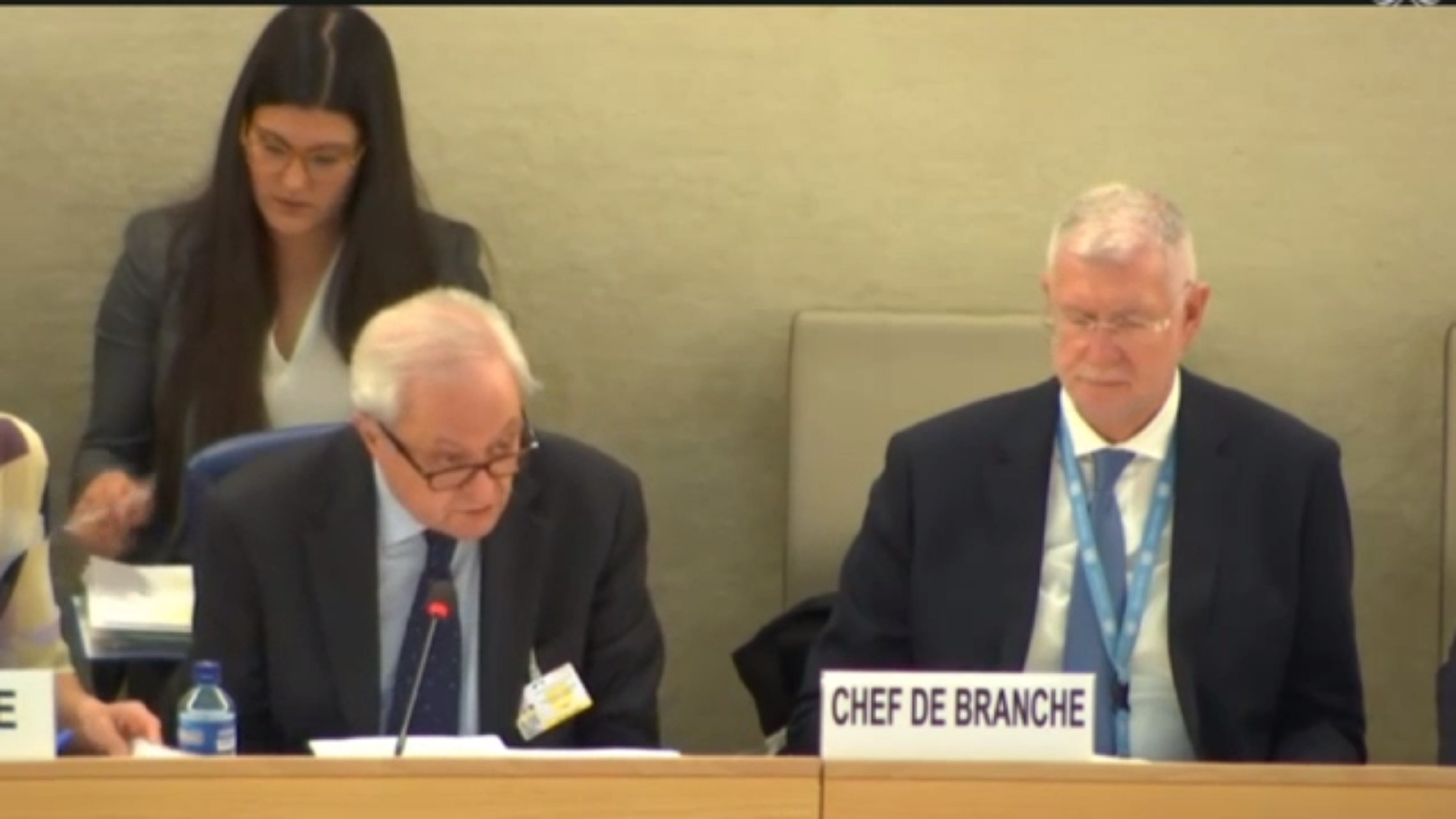The examination of Spain's human rights situation which took place this morning before the UN Human Rights Council in Geneva has prompted warnings from several countries about the need to guarantee freedom of expression and assembly in the Spanish state. References to police violence were also present in some interventions, calling for such cases to be investigated and those responsible held to account. The exam to which Spain is being submitted, the Universal Periodic Review, is an examination of a country's human rights situation which all UN member states face once every five years. In today's session, common themes raised by representatives of different countries were the situation in Spain with regard to gender-based violence, the treatment of migrants - with special mention of the situation in Spain's North African enclaves Ceuta and Melilla, and of unaccompanied underage migrants - as well as the fight against xenophobia and discrimination in Spain.
In the human rights review, which can be watched on video in English, Venezuela was the only state to have referred explicitly to the conflict between Catalonia and Spain and it called for "the new Spanish government to initiate a constructive dialogue with the Catalan people and their institutions". The High Commissioner's document which served as the basis for the examination already contained references to the 2017 Catalan independence referendum, with the Commission saying it was "very disturbed by the violence" registered during the referendum and calling for an independent investigation into "all acts of violence".
The need to guarantee freedom of expression and association in Spain was brought up by the United States representative, who demanded that "those responsible for crimes and offences against journalists and all actions that could undermine freedom of expression" should be held accountable, and also by Belgium, which called for measures to "guarantee the right to peaceful assembly and freedom of expression and opinion". But as well, Iran, Italy, Mexico, Switzerland, Egypt, Colombia, Costa Rica, Cyprus, Germany or Iceland stated their concerns with Spain on this issue. In many cases, the references were linked to Spain's Law of Citizen Security, the so-called Gag Law, and representatives appearing before the UN warned that this statute must not be used to compromise freedom of expression and assembly in the Spanish state.
Allegations on police abuses surfaced in the assessment made by Russia, which recommended an "independent and effective investigation into all cases of illicit intervention by law enforcement agencies", as well as in the submissions of Italy and the Netherlands, which explicitly called for such excesses to be investigated, with the issue also being cited by Iraq.
Luxembourg claimed that the offence of defamation should be decriminalized, and the Maldives also referred to this, while Canada explicitly requested a review of the Spanish Penal Code regarding offences of lese majesty - that is, insults against royalty.
Switzerland asserted that "the Francoist past is still a challenge for Spain" and called for the right to the truth, justice and reparation to be guaranteed, and for an investigate into the crimes committed during the Franco era, in accordance with international law. Lebanon and Armenia also spoke of historical memory.
Several countries, such as Austria, warned about the Spanish provision for prison regimes in which inmates are mantained incommunicado, while Liechtenstein, Malta, the Netherlands, and Argentina referred to torture and enforced disappearances.
Defending Spain's position against these criticisms was in the hands of Spanish foreign affairs official Fernando Valenzuela. He acknowledged that the Citizen Security Act and its interference with the freedom of expression and assembly were being analyzed, but emphasized that the goal of the law was "to safeguard the right to assembly" and to regulate it so that intervention is only necessary when it loses its "peaceful character". As well, he said, it was aimed at guaranteeing that police intervention was proportionate, based on minimal interference and not affected by discrimination through the content of messages. "At any time an individual can complain about the police before a court which, from a position of independence, will begin a legal process with guarantees," he said.
He assured that Spain has no law that makes it possible to interfere in the media, and very few legal controls on the freedom of expression, precisely to guarantee that freedom, and he also argued that the Law of Citizen Security does not restrict it. The Spanish state, according to Valenzuela, has only been found to have violated freedom of expression on eight occasions.
In relation to the offences of lese majesty, he explained that light sentences in this area have already been removed from the law and that in the case of offences against the king, following a judgment from the European Court of Human Rights, the law was modified because it was deemed to infringe on freedom of expression. He acknowledged that the offence of glorifying terrorism did exist, but said that there had been very few convictions and they only apply in blatant cases.
He assured that the incommunicado prison regime was thoroughly reformed in 2015, that cases where those in custody are denied their rights must be restricted to specific cases and that, even when in such cases, it is not complete isolation, because the prisoner has the right to communicate at all times with the judge, the prosecutor, and the coroner. "This is a partial, not total, incommunicado regime. Limited to five days, which can be extended if it is a terrorism offence," he said.
Valenzuela asserted that any allegation of the torture of a person in custody is the subject of an internal police investigation, and a can lead to a court case.
Bangladesh, the Czech Republic and Nigeria will be responsible for producing the final report on Spain's human rights record.
The full Spanish examination today at the UN in Geneva, including all of the international statements made, can be watched in English here.

